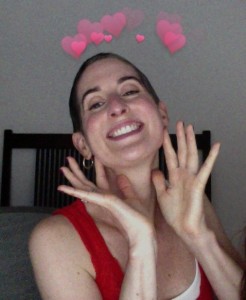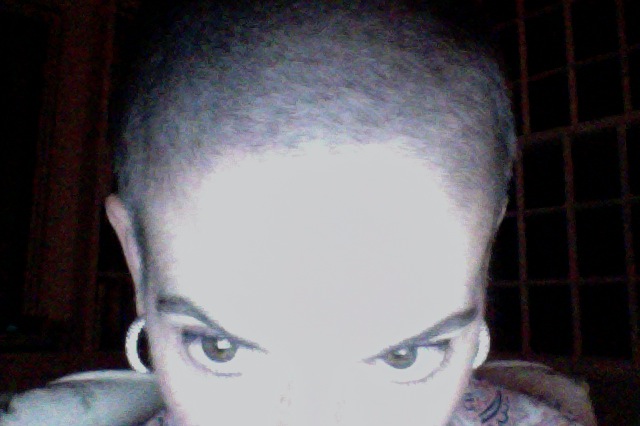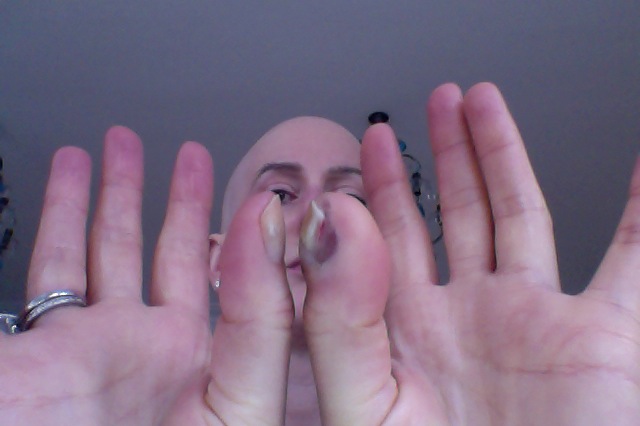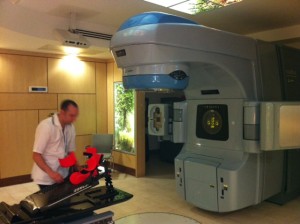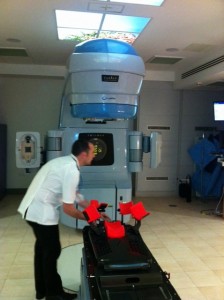And now for the latest in instructional videos, Randall will discuss how to tawk (that’s Long Island for “talk” for you Indonesian readers who are confused) about cancer… just kidding. But seriously it would be great if he made a YouTube video about that topic. Really? You don’t know who Randall is? http://www.youtube.com/watch?v=4r7wHMg5Yjg Come on.
This is likely a topic that will require several instalments (yeah that isn’t a typo the English spell it with one “l” I know so weird they do same thing with enrol I almost can’t take it). So here are some initial thoughts.
From the time I thought I might have cancer (last December) through my diagnosis (early January) and throughout treatment (February through July) and beyond (now), I have talked to an awful lot of people an awful lot about cancer. It has been unavoidable, and given my propensity for yakking, not surprising. Talking about cancer helps me cope — I am not one to shut things like that inside and hide myself away from the outside world. Putting it out there, and in doing so putting myself out there, has allowed me to feel some sense of control over the situation or at least some sense of power, if not control.
What has struck me time and time again is that people do not know how to talk about cancer. Even other people who have had cancer have said things to me that I really couldn’t quite believe. And it continues to happen all the time. Which is great in a way, because it serves as nifty inspiration for this here blog.
Now before I get into it I want you to know that if you feel that you are being singled out because you remember having said something similar or God forbid identical to what I describe below, you’ll have to get over it and promise not to be offended, horrified, guilty, angry, defensive, defiant or any other useless emotion. In fact I am probably not writing about you or something that you said, so don’t be “So Vain” as the song goes. And if you did happen to say some dumb thing to me or to another person who has or had cancer, don’t sweat it. Just hear me out.
Oh and here’s another disclaimer for good measure: I am well aware that all of the below is just my own personal take on the topic. I bet plenty of people would disagree with me. In fact I invite them or you to post comments disagreeing with me unless your big inspirational comment is that “most people mean well,” because that is the most useless bull shit comment ever and people throw it out there all the time. Of course most people mean well. That isn’t the point. I am not talking about evil here. None of the things said to me that have bothered me was intended to hurt me. I am 100% positive of that. I am just talking about what I don’t like and why.
Okay now I’m going to get into it.
One thing that really ticks me off is when people find out you have cancer and they tell you exactly what you are going to experience. I touched on this in the very beginning of my blog in an entry entitled Assaulted at the Global Festival: Things Not to Say to a Cancer Patient. If you haven’t read that and aren’t gonna I’ll recap: a lady who was herself a breast cancer survivor came up to me at a crowded event and outed me as a chemo patient, asked a lot of personal questions, proceeded to tell me I was going to feel like shit, physically and emotionally and indicated I wouldn’t feel normal for probably a year to eighteen months after my treatment ended.
This was not helpful. She could have been completely correct about all of those things (she wasn’t), but even if she had been, it was not her place to tell me how I was going to feel. Nor did I particularly want to be identified as a chemo patient at this event, for which I had put on a cute outfit and make-up so that I would feel as normal as possible, thank you very much.
Before that episode, shortly before I had even had my surgery, a friend and I did a quick clean-out of my closet. I took the nicest clothes to the consignment store after donating the serviceable yet not resalable things to charity. The owner of the store asked me what I’d like to do in the event that an item didn’t sell. “Would you like to donate it to cancer research?” She asked. I looked at her. “Why yes, I would,” I responded. “As a matter of fact, I would very much like to do that because I have just been diagnosed with breast cancer myself.” Big mistake. That’s what I get for being a blabbermouth. She launched into a mini speech about the treatments I would have even though she didn’t know anything about my particular case. When I made the second mistake of trying to correct her on some points she stood her ground and said she’d had a number of friends go through it and that indeed I would be having x, y and z treatment as she had outlined. That made me wish I had just dropped the clothes off and shut up.
The long and short of it is, a lot of people have cancer. Far too many. But their particular cancer and how they feel, both physically and emotionally, and the treatments they will have and how they will respond to these treatments varies widely. If there is one thing I have learned it’s that this is a highly individual experience. You talk to enough people going through “the same thing” to realise that they aren’t going through all the same things. And you need to be sensitive to that. One person might sail through chemo and another might end up in the hospital with a bad infection for two weeks during chemo. One person might experience a side effect that you never experience and vice versa. And you just cannot know. So you shouldn’t assume.
It didn’t bother me when people told me what they had experienced themselves. It just bothered me when they told me what I was going to experience in specific, sometimes preachy terms. It isn’t fair.
Another thing that thrills me is the whole “I have a friend, relative, etc. who had the same thing and they died.” I am a big girl and I know that cancer kills people. But it really bothers me when the first thing out of someone’s mouth when they find out I had cancer was that their aunt or cousin or buddy had cancer and died. It’s hard not to focus on the sad stories, especially in the beginning. Or at least it was for me. It’s pretty terrifying to find out that you have cancer, and that you are mortal is already going through your head a fair bit. So having the fragility of your life highlighted by stories about people who have lost theirs isn’t really what the doctor ordered.
I have stewed about these things and why people say them. And you know what? I think it’s because people want to find some common ground. They want to say something to you so that you know they are empathetic, responsive. They trot out the dead cousin or the “you’ll feel like shitola for a year” yadda yadda yadda because they want to relate personally to you and to your situation. Not doing so seems unfeeling or awkward. Not doing so isn’t human.
My final pet peeve (for tonight) is when people I don’t know well (or at all) ask “did they catch it in time?” Translation: Are you going to die any time soon? I suppose this isn’t fair of me. I mean, it seems to be a perfectly legitimate question when you find out someone has a life-threatening disease to discover just how threatening it is. But unless you know the person very well or they volunteer information, try to get the answers to these questions from someone else or learn to live with the uncertainty. I have had the luxury of saying to people “yes, we caught it fairly early.” But I know people who would have to say that actually the prognosis isn’t too great. And is it fair to put someone on the spot with this question about how long they think they might be around? Especially if you don’t even know them? I don’t think so. It made me feel as though I was being put into a box: check (a) for going to live and (b) for not going to make it. No. Nope. I don’t like it.
I think that people ask whether you’ve “caught it in time” because they desperately want the answer to be yes. Their subconscious is thinking, let it be yes so that I don’t have to feel so terrible. So I can be encouraging.
It is awkward and just plain painful to hear from someone that they have cancer or some other serious problem, be it a health problem or that their wife just left them (unless they are a schmuck and you think they deserve it — the wife leaving, not the cancer). It is. I often feel sorry for people when I tell them about the cancer. I feel guilty for making them experience the shock of it. It is such a blow to deal someone else. And when they are still reeling from the punch is it any wonder their response might be a bit flailing? Of course not.
What I think would be really great is if people could just get comfortable with a pause. Even a long pause. Take the deep breath before you dive right in. You don’t have to say “the right thing.” There is no right thing. And if you jump right in in order to relate to someone you might inadvertently alienate them. That is certainly true of the people who have told me what it’s going to be like for me as if they know.
At the end of the day, you don’t have to relate personally to it and sometimes you simply can’t. That doesn’t mean you can’t talk about it, but do not underestimate the power of listening. Do not underestimate the power of a little bit of silence. Don’t feel like you have to fill the void. You don’t have to. You can’t fix it. And that’s okay.
Now for all you jokers who plan to comment that people mean well even after I warned you not to, resist the urge or tomorrow I’ll short-sheet your bed.
Like this:
Like Loading...

